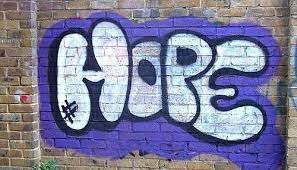Joyriding Back on the Agenda
/Young people were back in the headlines this week with the very serious incident of joyriding in Cherry Orchard. Video footage was widely circulated of a large group of young people cheering at two cars joyriding, with one then proceeding to ram a Garda car. The incident that took place in the early evening while it was still bright outside has understandably generated a lot of outrage and concern.
This event has been widely condemned across society from community representatives, Gardai, politicians and the general public. Solas Project joins in condemning all activities where anyone’s safety is put at risk and supports the rights of everyone to live in communities free from fear of incidents such as these. We advocate for policies that address the root causes of incidents such as these and not knee-jerk reactions to those involved.
We believe that prevention should always be prioritised over punishment.
Joyriding is not a new phenomenon for young people. Our Youth Justice Programmes Manager Ashling Golden recently completed her master’s dissertation researching young people involved in this activity. She looked at what compels young people towards driving illegally and what supports their diversion from it.
From our work on the ground with young people who are early school leavers, facing employment and disconnected from their communities we have seen that it is the young people who are most excluded who engage in more serious and prolific offending behaviours. Our experience has shown that the resulting further exclusion from their communities in the form of harsh punishments does not bring about pro-social change.
Extreme events like the one last week come as a result of young people continually slipping, or being pushed, through the cracks. The research we conducted is supported by international studies suggesting that joyriding lures young people who are attracted to risk-taking behaviours.
Considering the exclusion they already experience there is a sense of “nothing to lose”.
Young people engaging in these behaviours believe that the benefits of joyriding outweigh the consequences. The benefits include: a feeling of power gained in being a champion; the status of being anti-authority; and the encouraging attention of the crowd. We could see this at play in this week’s event with the significant role played by large crowd of young people cheering on. These motivations must be taken into consideration in our societal response.
Young people who are gaining a sense of worth through these activities need alternative avenues to gain this worth and to build a brighter future.
Disadvantaged communities across the city need increased support for young people, from safe spaces to build positive relationships to employment opportunities and outlets for safe high-risk leisure activities such as biking and driving.
Our research shows that the current response to driving offences in Ireland (a driving ban or on a more serious occasions, imprisonment) does not have a significant impact on preventing this type of behaviour. In fact, the opposite can be the case, as these approaches can perpetuate the “nothing to lose” attitude. Much more successful outcomes are achieved when the young people involved get the opportunity to:
Learn to drive legally;
Build strong healthy relationships within their communities;
Move into meaningful employment.
Solas Project is calling for this recent incident to be a catalyst for change. One of our core values is Justice, this means actively supporting young people to overcome barriers and encouraging them to pursue a more just society where everyone can flourish. It is no coincidence that the young people involved in incidents like this are those who have been routinely excluded from society from a young age, from schools, clubs, sports teams etc.
Young people need to be invested in, to be provided with safe spaces to build their self-worth and develop a hope for their future.
Our call is for those most marginalised young people in our communities not to be further excluded. We want to see local communities, young people, politicians and the Gardai work together to tackle exclusion and break the generational poverty cycle.




